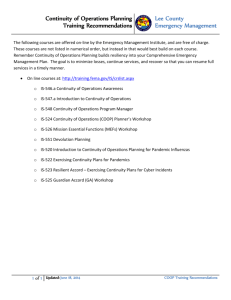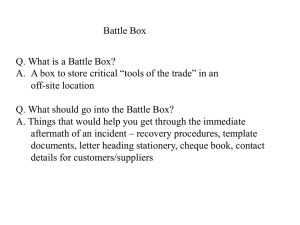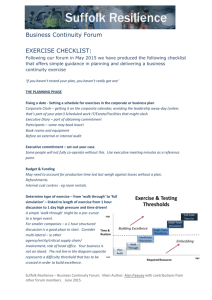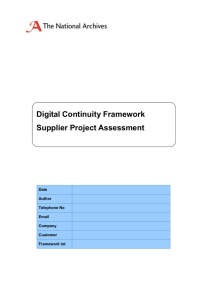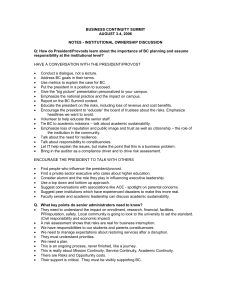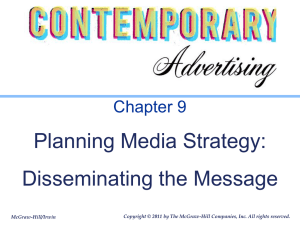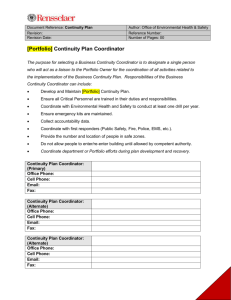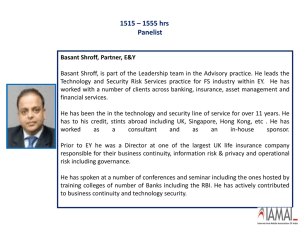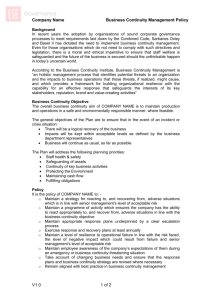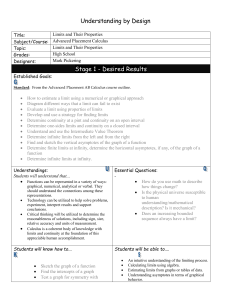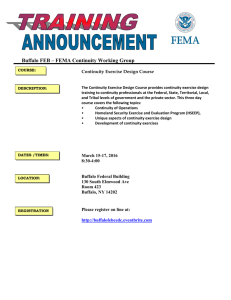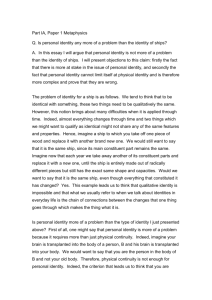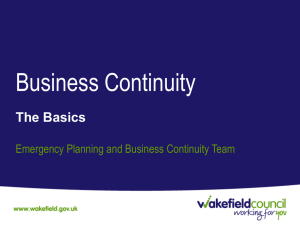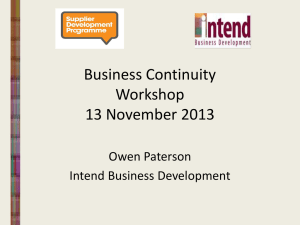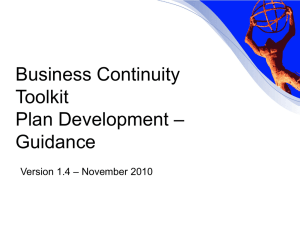Running an Exercise - Suffolk Resilience
advertisement
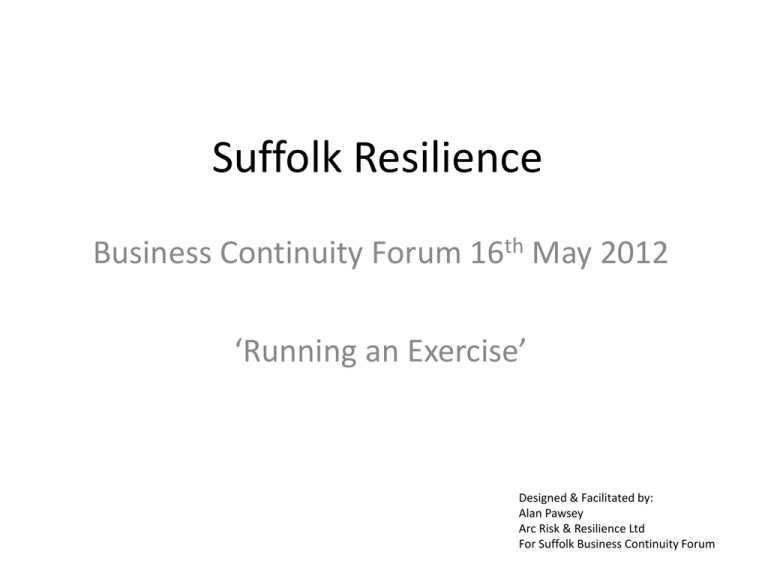
Suffolk Resilience Business Continuity Forum 16th May 2012 ‘Running an Exercise’ Designed & Facilitated by: Alan Pawsey Arc Risk & Resilience Ltd For Suffolk Business Continuity Forum A few thoughts: ‘No plan survives first contact with the Enemy’ ‘The only thing more difficult than Business Continuity planning is trying to explain why you didn’t’ ‘It is not whether you get knocked down, it is whether you get up’ ‘If you haven’t tested your plan – have you really got one?’ Why/So What? • Enhances Internal Communication • Increases Confidence • Decreases Uncertainty • Identifies Faults in Planning • Helps to identify those with leadership skills • And…. ‘Running an Exercise’ • Scope and Objectives: – Understanding the Exercise in a Business Continuity Context • Types of Exercise – Some Do’s and Don’ts – Experience Exercise Planning & Delivery • Case Study – Hope Ltd • Business Continuity Update – Olympics 2012 Types of Business Continuity Exercise Full Scale Exercise Building Excellence Multi-Team Simulation Single Team Simulation Time & Realism Facilitated Discussion Plan Audit Embedding Walk Through Resource Some Do’s and Don’ts: • Top Management Sponsorship – agree type, objectives, format, involvement & budget – You should not attempt to exercise everything – declare what is in scope and what is not. • Avoid ‘going large’ for the first exercise • Avoid ‘we are all going to die’ scenarios - Ensure they are relevant to the business yet sufficiently challenging • Form a small team to deliver and market the exercise • If appropriate – H & S risk assessment • Ensure the exercise does not cause unintended disruption to operations • Create a learning environment. – Generally exercising the ‘Plan’ not the people – Allow time for ‘hot’ and more structured debriefs later. Case Study: • This case study provides a platform to explore general exercise design and delivery issues • Hope Ltd is a fictitious company • You are a manager employed by Hope Ltd with responsibility for Business Continuity . You are simply tasked by the MD to ‘plan and deliver an exercise’. Case Study: • There is sufficient detail for you & your group to: – Decide Scope, Objectives & Style – Develop suitable scenario – Plan how the exercise scenario will unfold and be responded to by participants • Prepare a list of time scheduled ‘injects’, their purpose and expected response (like an agenda) • Have additional material available if ‘it all gets too easy’ • Be prepared to cut material if time schedule proves inaccurate – Outline exercise planning to group Running an Exercise - Discussion Scope Objectives Style Scenario Exercise Plan Delivery Next Steps – from De-brief (Plan Revision) Exercise Plan Example of simple Exercise Plan – think of it as an Agenda+ to help you keep on track Real Time Ex Time Event or Inject Objective Comment 9am 9am Intro to Exercise - - 9.10am 8am Scenario part 1. Question: [who, what etc] Paper Feed Identify nature of Incident & Impact [Technical or notes of detail for Facilitator] 9.20am 8.30 Open Discussion Reference to Plan Broadly speaking, complex exercises (eg Simulations) need more complex and detailed planning. On-Line Resources: • Top tips for fantastic business continuity desktop exercises http://www.continuitycentral.com/feature0939.ht ml • Developing scenarios http://www.continuitycentral.com/feature0908.ht ml • Put Your Plans to the Test: Buildings http://www.buildings.com/tabid/3334/ArticleID/57 38/Default.aspx#top Business Continuity Updates: Comments from the Business Continuity Industry… • ICT and Business Continuity: recovery planning in silos – Suits & Techies – need to talk to each other more often…http://www.continuitycentral.com/feature0948. html • Horizon Scan for BCI reveals in UK major concerns are: – Unplanned IT/telecom outage – Data breach – Adverse weather There is variation depending upon sector – Manufacturing are concerned about the Supply Chain; Public Administrators are worried about Human Illness. http://www.bcifiles.com/BCIHorizonScan2012.pdf Comments from the Business Continuity Industry… • Share-point users seem to disregard data security, copying data off-line onto insecure drives and USB Sticks – mainly to work from home. – Similar issues for organisations that permit ‘Bring Your Own Device’ • PWC points to increase in ‘black-swan’ events. Current Enterprise Risk Management practices may need to evolve from box ticking to greater involvement – especially at Board level. An Icon in the USA • Waffle House Restaurants: • Walt Ehmer described how recovery is ingrained in the company. He said the culture of the company revolves around two words: ‘Show up’. http://www.emergencymgmt.com/disaster/How-Recovery-Is-Ingrained-in-Waffle-Houses-Culture.html



